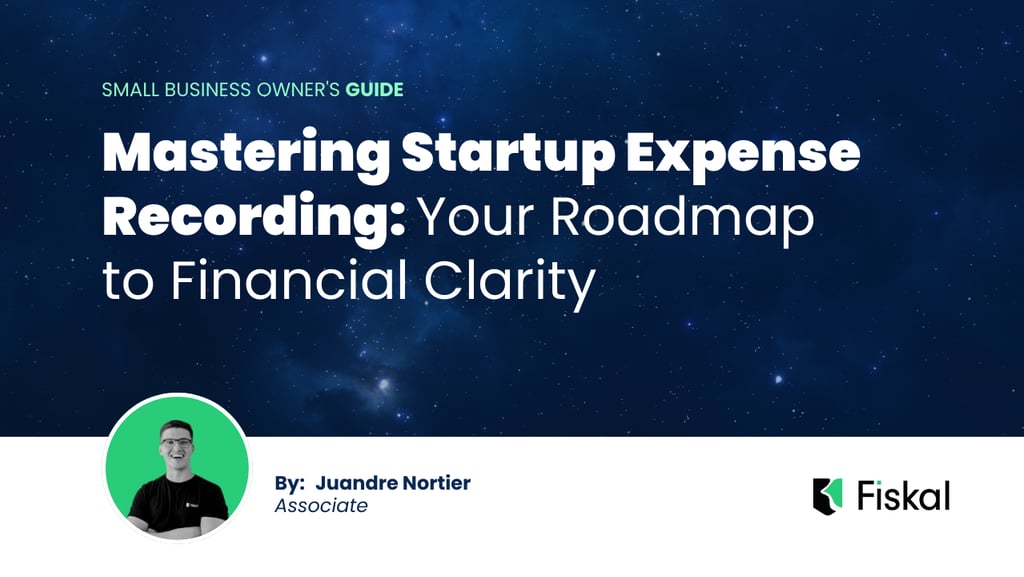Mastering Startup Expense Recording: Your Roadmap to Financial Clarity
Starting a new venture? Congratulations! But before you dive into the entrepreneurial whirlwind, it's crucial to lay down a solid financial foundation by recording your startup expenses accurately. Here's your step-by-step guide to mastering the art of startup expense recording.
SYSTEMS AND SOFTWARE


1. List Your Expenses
Kick off your journey by creating a detailed list of all your startup expenses. Think legal fees, office rent, equipment purchases, marketing costs, and everything in between.
2. Organize Your Documents
Keep track of receipts, invoices, and payment confirmations like a pro. Establish a system, whether digital or physical, to ensure all your financial documents are well-organized and easily accessible.
3. Pick Your Accounting System
Choose the accounting system that suits your business needs. Whether it's a simple spreadsheet or sophisticated accounting software like QuickBooks, find a tool that fits your budget, features, and scalability requirements.
4. Record Expenses Promptly
Make it a habit to record expenses as soon as they occur. Timely recording prevents oversights and ensures your financial records are up-to-date and accurate.
5. Categorize Expenses
Organize your expenses into relevant categories for better financial analysis. From overhead expenses to one-time startup costs, proper categorization helps you understand your spending patterns and make informed decisions.
6. Separate Personal and Business Expenses
Maintain a clear distinction between personal and business expenses. Open a separate business bank account and use dedicated business credit cards to avoid confusion and streamline your accounting process.
7. Track Non-Cash Expenses
Don't forget to account for non-cash expenses like equipment depreciation or stock-based compensation. These expenses impact your bottom line and should be recorded accurately for a comprehensive financial picture.
8. Review and Reconcile Regularly
Schedule regular reviews of your financial records to spot discrepancies and errors. Reconcile your records against bank statements and other financial documents to ensure accuracy and completeness.
9. Seek Professional Advice
When in doubt, consult with accounting professionals for guidance. A CPA or financial advisor can offer valuable insights and ensure compliance with relevant regulations.
10. Plan for Growth
Use your recorded expenses to inform future budgeting and strategic planning. Analyze your spending patterns and adjust your plans to align with your business goals and aspirations.
Congratulations! You're now equipped with the knowledge to record startup expenses like a seasoned pro. By following these steps diligently, you'll pave the way for financial success and prosperity in your entrepreneurial journey. Here's to your startup's bright future!












